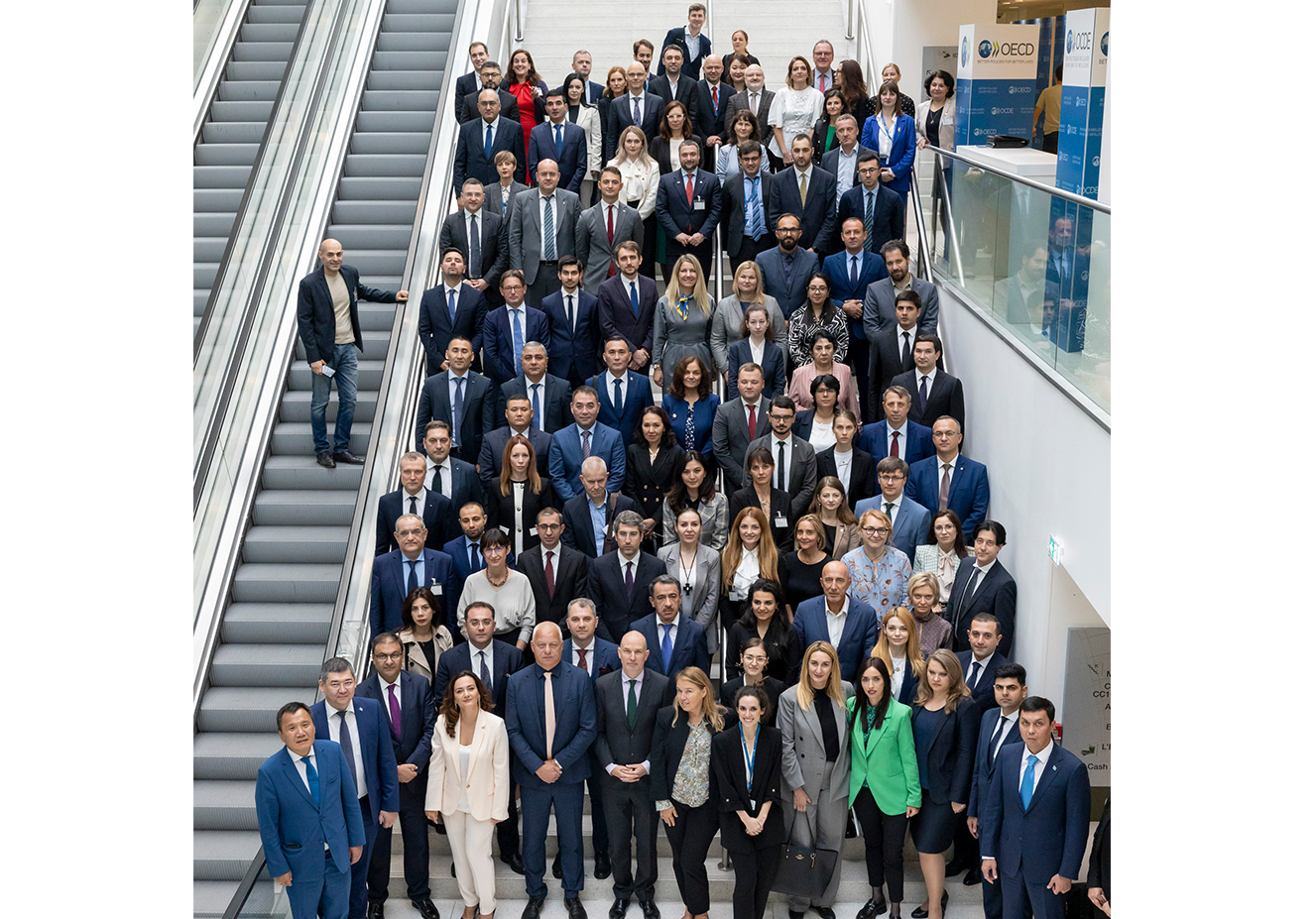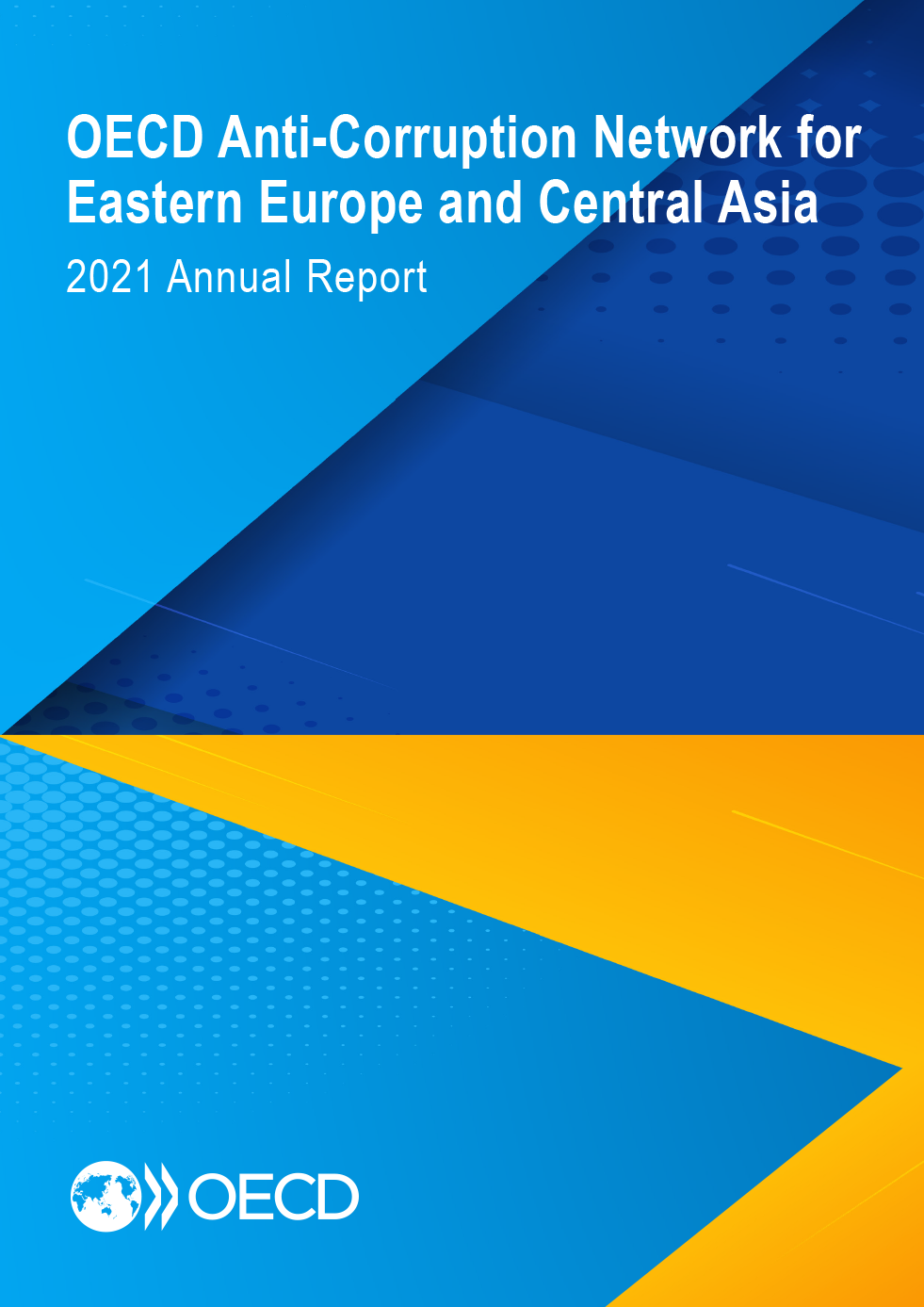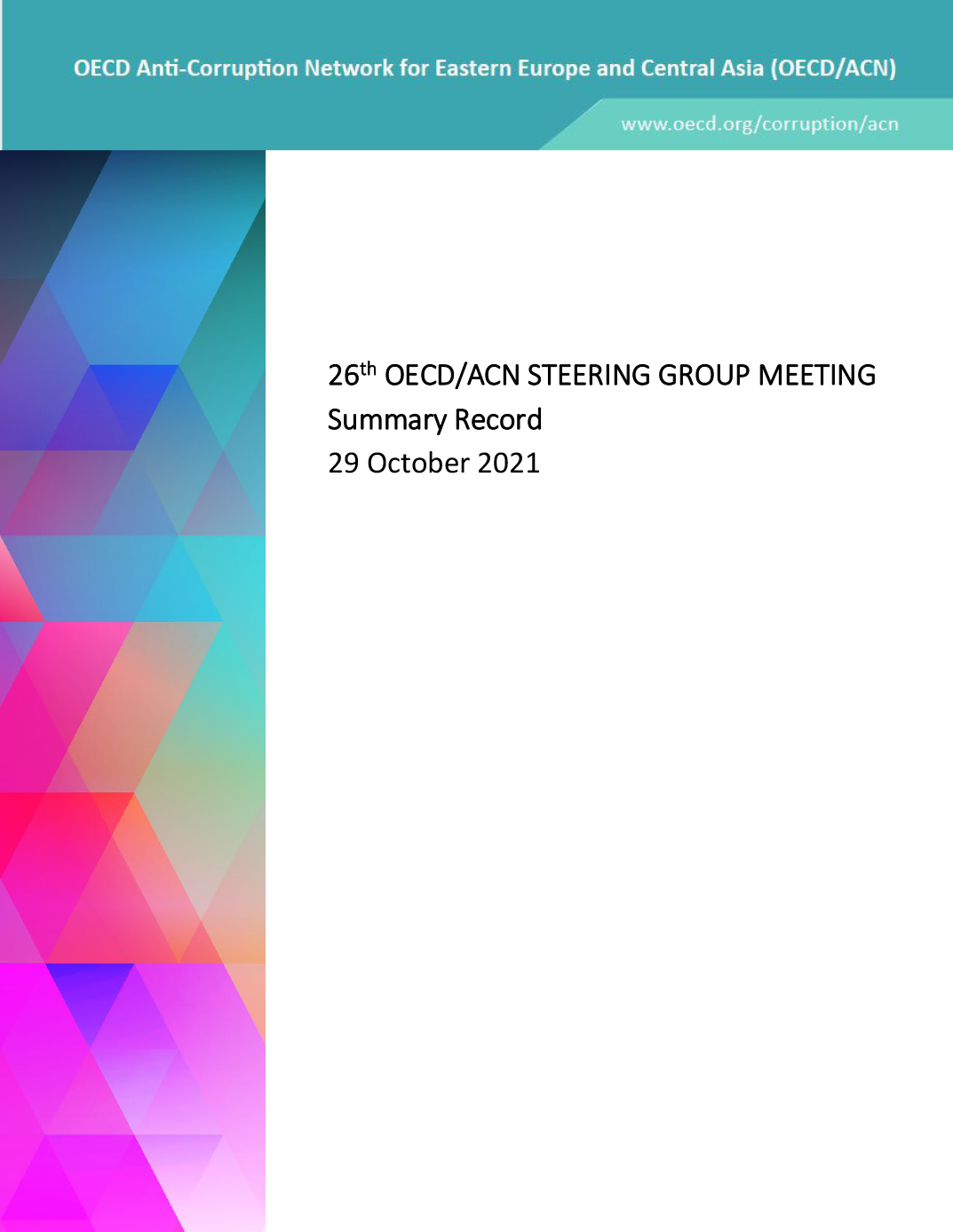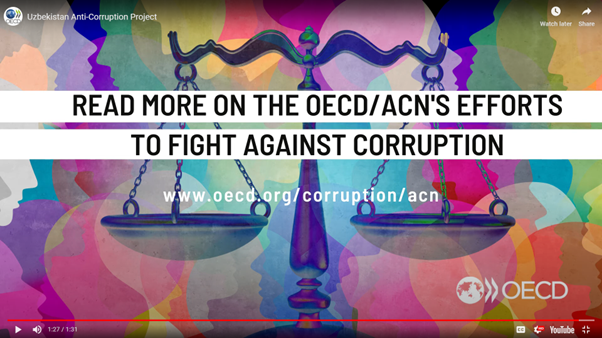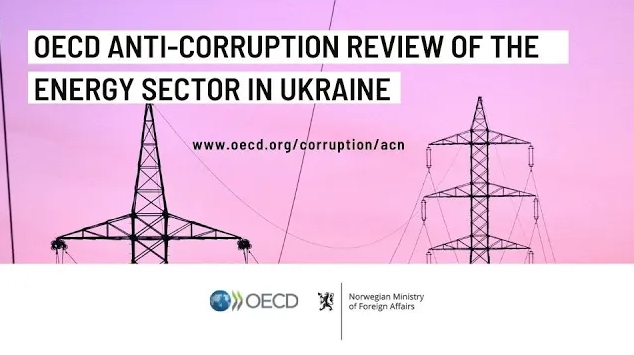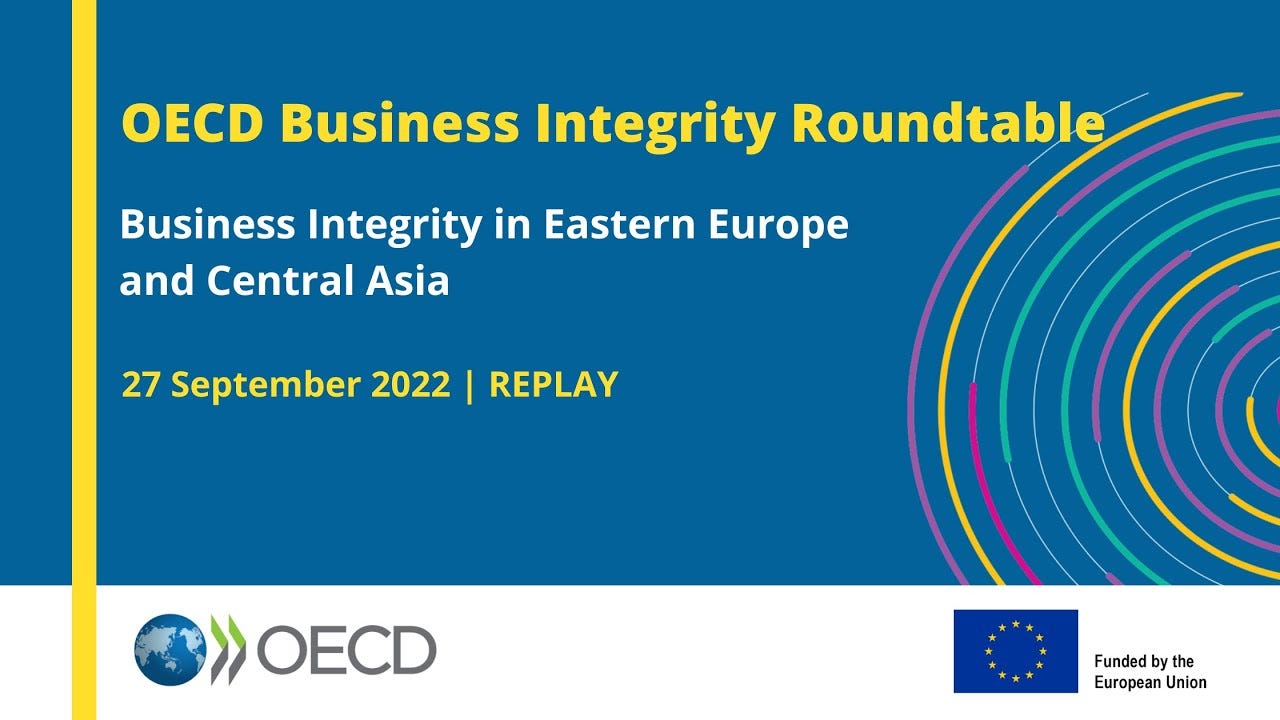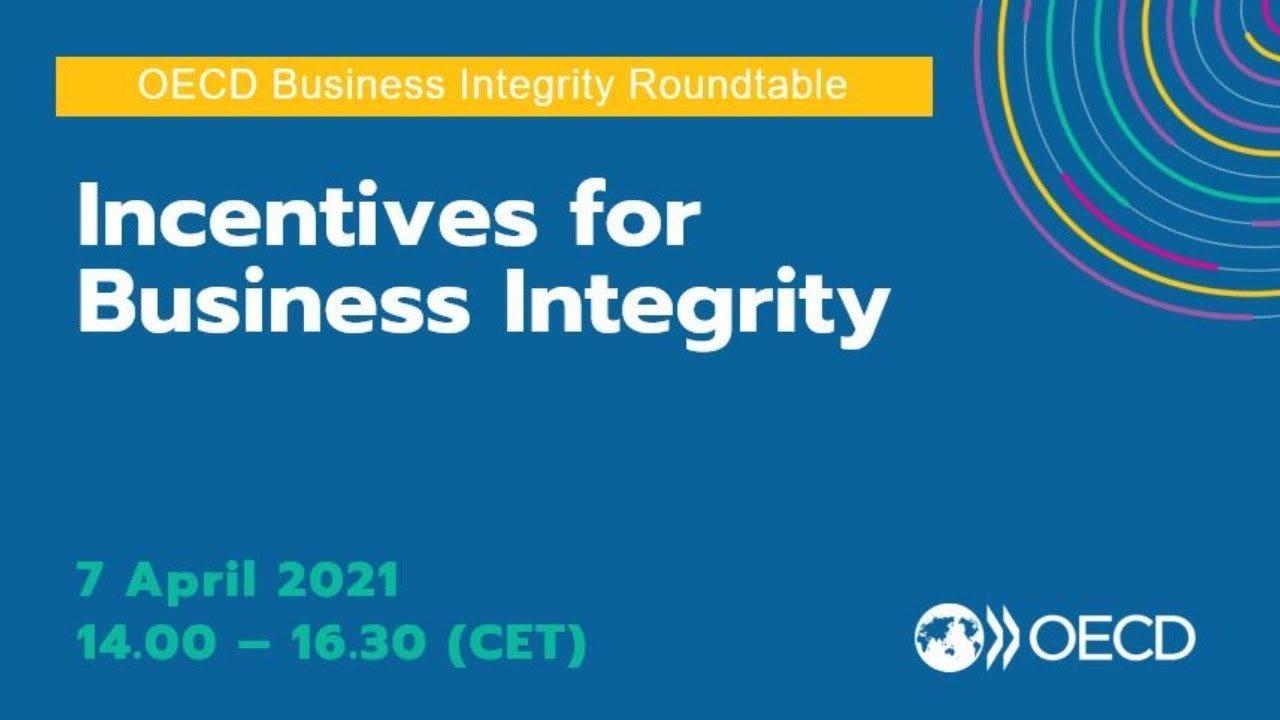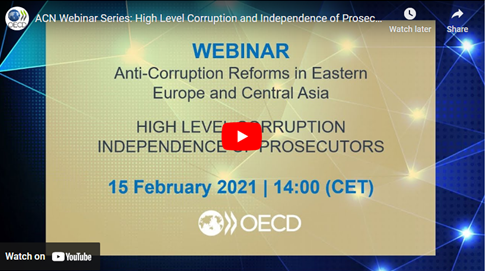The OECD's Anti-Corruption Network for Eastern Europe and Central Asia (ACN) helps fight high-level corruption.
Anti-Corruption Network for Eastern Europe and Central Asia
The Anti-Corruption Network for Eastern Europe and Central Asia is a regional outreach programme of the OECD Working Group on Bribery, established in 1998. It supports member countries in their efforts to prevent and combat corruption, through country reviews, practitioners’ networks and country-specific technical assistance.
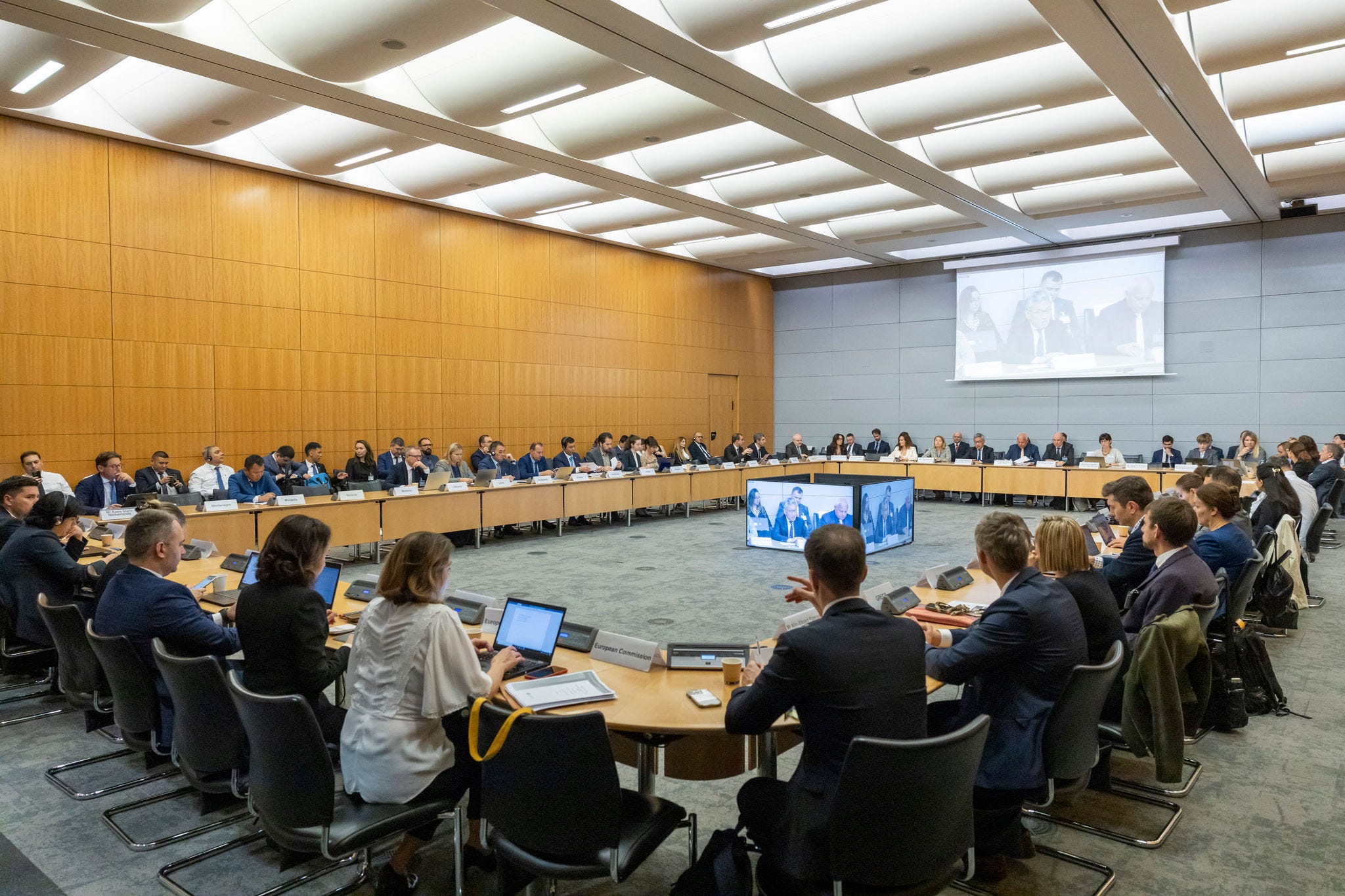
ACN assesses anti-corruption measures, allows confidential exchanges of methods between investigators and prosecutors and identifies good practices. It also provides technical assistance in projects on demand from individual countries. ACN has been a catalyst of anti-corruption reforms in the region and has benefitted from the ownership, dedication and commitment demonstrated by participating countries.
ACN's Steering Group, its main decision-making body, is composed of national co-ordinators from ACN countries as well as representatives from partner bodies, which include international organisations, civil society and business groups engaged in anti-corruption work in the region. The Steering Group guides ACN's Secretariat, which is responsible for developing, implementing and assessing ACN's work programme, endorsed by participating countries’ anti-corruption leaders.
ACN's partners include the: European Union; United Nations Office on Drugs and Crime; United Nations Development Programme; Council of Europe Group of States against Corruption; Council of Europe Development Bank; Organisation for Security and Co-operation in Europe; World Bank; European Bank for Reconstruction and Development; Regional Anti-corruption Initiative; Regional School of Public Administration; Transparency International; US Department of State’s Bureau of International Narcotics and Law Enforcement Affairs; and other international, non-governmental, business and academic organisations. OECD members also participate as partners or donors.
1998
Year founded
Originally an awareness-raising initiative, ACN today makes a measurable impact on anti-corruption policies and practices in participating countries.
24
Participating countries
The number of countries participating in the network has grown consistently to include nearly all of the Eastern Europe and Central Asia region.
2021
Launch of the EU for Integrity Programme for the Eastern Partnership
This programme marked the start of the network's collaboration with the EU.
Our activities
The Istanbul Anti-Corruption Action Plan (IAP) is ACN's flagship peer-review programme promoting international standards and good practice in anti-corruption. Launched in 2003, the programme supports reform by continuously monitoring anti-corruption performance in ten countries (Armenia, Azerbaijan, Georgia, Kyrgyzstan, Kazakhstan, Moldova, Mongolia, Tajikistan, Ukraine and Uzbekistan). It is currently in its fifth round of monitoring.
The IAP is known for high standards of transparency and inclusion of non-governmental stakeholders, including civil society organisations, as well as business and international communities.
As a voluntary initiative, the programme has proved its leverage to encourage countries to sign up to ambitious commitments and incentivise anti-corruption performance.
Read more on IAP country monitoring.
Regional policy dialogue
ACN promotes effective, evidence-based anti-corruption policies. From 2024, data will be regularly collected for the whole region and reflected in regional outlook reports that analyse anti-corruption trends and areas of strong and weak performance based on a standardised framework of key performance indicators. ACN's Steering Group will include a thematic regional dialogue session based on these reports.
The Business Integrity Group emerged through an informal group of business integrity practitioners. It is made up of representatives of companies, business associations, collective actions and public institutions taking an active role in promoting business integrity and seeking ways to exchange experiences and boost integrity of business operations in their countries.
The Business Integrity Roundtable Series was launched in 2021 as a forum to promote good practices on anti-corruption compliance among OECD member and non-member governments and private sector partners. As part of the series, ACN holds annual meetings of the Business Integrity Group to help member states promote ethical business conduct in the region by sharing experiences and learning from their peers and members of the OECD, the EU and other regions.
Under the EU for Integrity Programme, ACN conducted surveys of businesses in Eastern Partnership (EaP) countries and consultations with various stakeholders involved in promoting business integrity in selected ACN countries. These fed into the new edition of the Business Integrity study, released in 2022. The EU for Integrity Programme also enabled ACN to analyse one of the emerging business integrity solutions in the region – the Business Ombudsman institutions.
ACN's future activities will aim to support and expand the Business Integrity Group and provide technical seminars on building capacity for business integrity.
Regional business integrity survey 2024: Key findings
Business ombudsman institutions in Eastern Europe and Central Asia, 2024
Business integrity in Eastern Europe and Central Asia, 2022
In 2010, ACN established the Law Enforcement Network of Eastern Europe and Central Asia (LEN) to help law-enforcement officials working on corruption cases in the ACN region build their capacity, exchange experiences, learn about modern detection, investigation and prosecution techniques, and contribute to regional co-operation. The LEN also provides a platform to develop professional contacts, which is necessary for the effective investigation and prosecution of complex cross-border corruption cases. The network operates mainly by holding annual meetings.
The LEN meetings bring together anti-corruption practitioners – investigators and prosecutors from the ACN region – as well as law-enforcement practitioners from selected OECD countries. The meetings are, for the most part, strictly confidential, allowing for open and substantial discussions. They also provide a platform to discuss ongoing cross-border corruption investigations bilaterally in a confidential setting.
Since 2010, ACN has organised 13 LEN meetings. The most recent was aimed at strengthening law enforcement’s capacity to combat high-level corruption and was made possible with support from the European Union and United States.
ACN is setting up a working group for EU and Eastern Partnership countries under the LEN banner, developing cross-border case studies and a matrix of allegations of high-level corruption.
Related publications:
The independence of prosecutors in Eastern Europe, Central Asia and Asia Pacific, 2020
ACN also analyses sectoral issues covering education, customs, land management, SOEs, political corruption and procurement for infrastructure and found that countries struggled to apply general corruption prevention policies and enforcement measures to specific sectors. To help countries deal with these challenges, ACN disseminated the INTES methodology, which helps assess corruption risk in the education sector, and conducted seminars on sector-specific anti-corruption reforms in education, policing and natural resource management, and on anti-corruption reforms at the local government level.
Building on the work done to date and taking into account countries’ priorities, sectoral work continues, with a focus on sectors that touch on the everyday lives of people. Countries can take the lead on sectoral workstreams and host expert seminars on the issues.
Roundtable on integrity in higher education: Summary report (2023)
Corruption prevention at local level in Eastern Europe and Central Asia, 2021
Integrity of education systems: A methodology for sector assessment, 2018 | [Russian]
Corruption prevention in the education, extractive and police sectors, 2017 | [Russian]
Country projects
-
The Istanbul Anti-Corruption Action Plan is the flagship peer-review programme for the Anti-Corruption Network for Eastern Europe and Central Asia.Learn more
-
ACN has contributed to designing and setting up the current institutional framework for anti-corruption in Ukraine, building capacity and also supporting other specialised institutions and mechanisms outside the criminal justice system.Learn more
-
This project aims to improve the quality and effectiveness of the detection, investigation and prosecution of corruption in Kazakhstan.Learn more
-
In 2021, collaboration between ACN and the EU began with the launch of the EU for Integrity Programme for the Eastern Partnership.Learn more
The methodology of the fifth monitoring round is groundbreaking: it is unconditionally objective, its results are absolutely predictable and that makes the whole exercise extremely fair, an important fact when you evaluate countries in as sensitive an area as corruption.
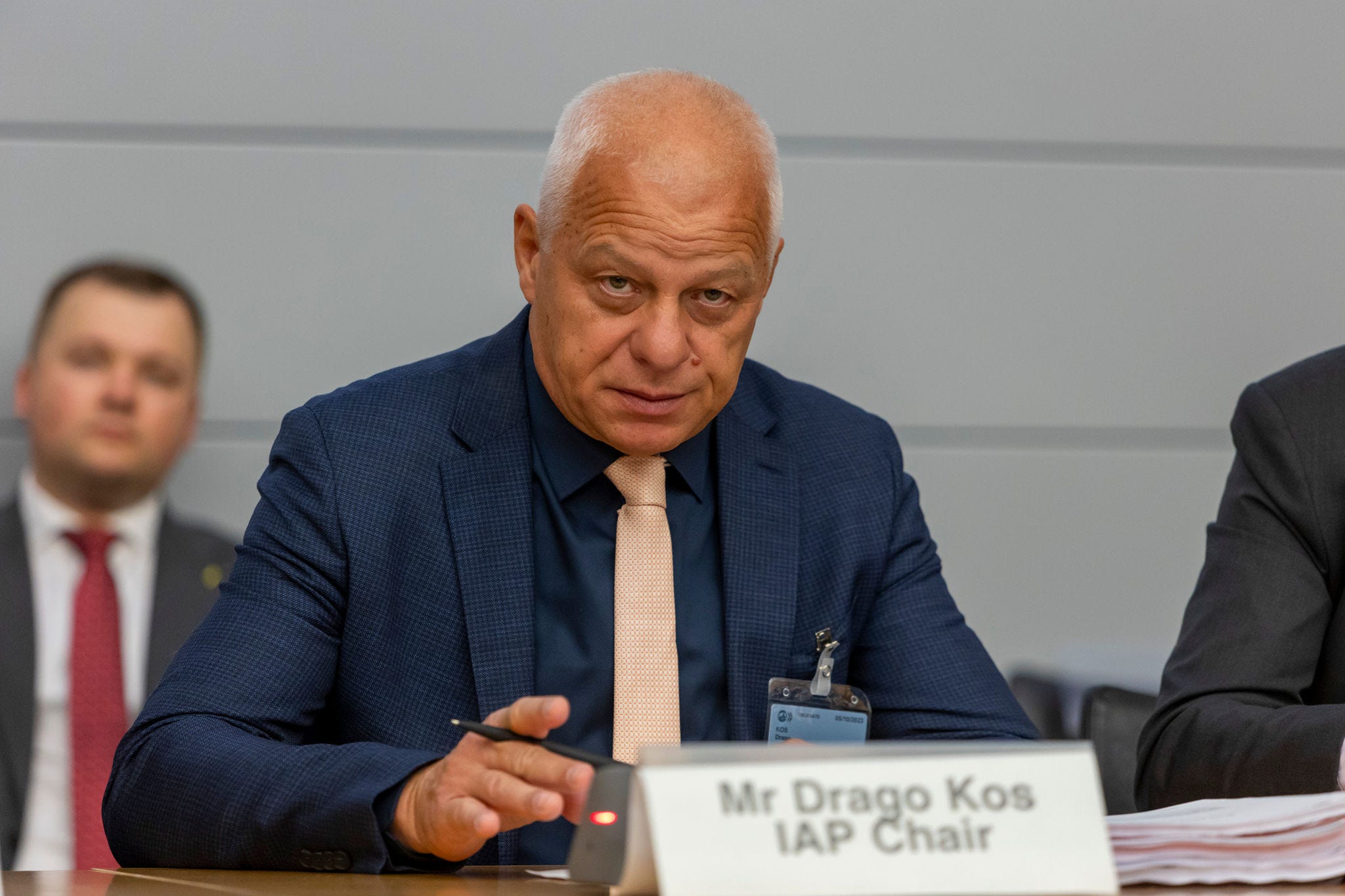 Mr Drago Kos, ACN Plenary 2023
Mr Drago Kos, ACN Plenary 2023
The new scoring methodology of the assessment framework allows a flexible approach – the country would not fail immediately if it does not comply with some parts of the benchmarks – and shows progress much better. The benchmarks are much clearer and more focused and allow comparison of results across the countries.

- Dragos Kos
- Mari-Liis Soot
Related publications
-
The report assesses Kazakhstan’s anti-corruption reforms against a set of indicators and benchmarks under nine performance areas that focus on anti-corruption policy, prevention of corruption and enforcement of criminal liability for corruption offences. The report analyses Kazakhstan’s efforts to amend its laws and build anti-corruption institutions to prevent and address corruption, and its measures to detect, investigate and prosecute corruption cases identifying areas for improvement and follow up.Learn more
-
The report assesses Kyrgyzstan’s anti-corruption reforms against a set of indicators and benchmarks under nine performance areas that focus on anti-corruption policy, prevention of corruption and enforcement of criminal liability for corruption offences. The report analyses Kyrgyzstan’s efforts to amend its laws and build anti-corruption institutions to prevent and address corruption, and its measures to detect, investigate and prosecute corruption cases identifying areas for improvement and follow up.Learn more
-
The report assesses Tajikistan’s anti-corruption reforms against a set of indicators and benchmarks under nine performance areas that focus on anti-corruption policy, prevention of corruption and enforcement of criminal liability for corruption offences. The report analyses Tajikistan’s efforts to amend its laws and build anti-corruption institutions to prevent and address corruption, and its measures to detect, investigate and prosecute corruption cases identifying areas for improvement and follow up.Learn more
-
The study presents an analysis of the state of play in the fight against high-level corruption in Eastern Europe, with a focus on Eastern Partnership countries, highlighting the key underlying factors contributing to high-level corruption in the region – oligarchs and organised crime. It advocates for establishing a specialised anti-corruption institutional framework as a key solution. It details recent institutional developments and underscores the need to ensure real independence of anti-corruption agencies, provide them with sufficient resources and develop analytical capacities. The report also highlights the importance of strengthening co-operation with whistleblowers and investigative journalists and building a partnership between civil society and businesses. The study also calls on countries to address legislative deficiencies, such as complex mechanisms for lifting immunities, time limits for investigations and low statutes of limitations.Learn more
-
This report examines the work of the business ombudsman institutions of Georgia, Kazakhstan, Kyrgyzstan, Ukraine and Uzbekistan in order to identify their successful practices, as well as gaps that can be addressed through mutual learning and knowledge sharing. It reviews key aspects of the work of these institutions, including the legal framework for their operations, independence and accountability safeguards, funding mechanisms and operational procedures. Based on the analysis, the report offers a number of recommendations that can help improve existing institutions and also be useful to countries that are considering establishing them.Learn more
-
The report assesses Ukraine’s anti-corruption reforms against a set of indicators, benchmarks and their elements under five performance areas that focus on anti-corruption policy, prevention of corruption and enforcement. It analyses Ukraine’s efforts to amend laws, build anti-corruption institutions, its measures to detect, investigate and prosecute corruption cases and identifies areas for improvement.Learn more
-
The report analyses Moldova's efforts to build anti-corruption institutions, its measures to detect, investigate and prosecute corruption cases and identifies areas for improvement.Learn more
-
The report analyses Azerbaijan's efforts to build anti-corruption institutions, its measures to detect, investigate and prosecute corruption cases and identifies areas for improvement.Learn more
-
The report analyses Armenia’s efforts to build anti-corruption institutions, its measures to detect, investigate and prosecute corruption cases and identifies areas for improvement.Learn more
Events
-
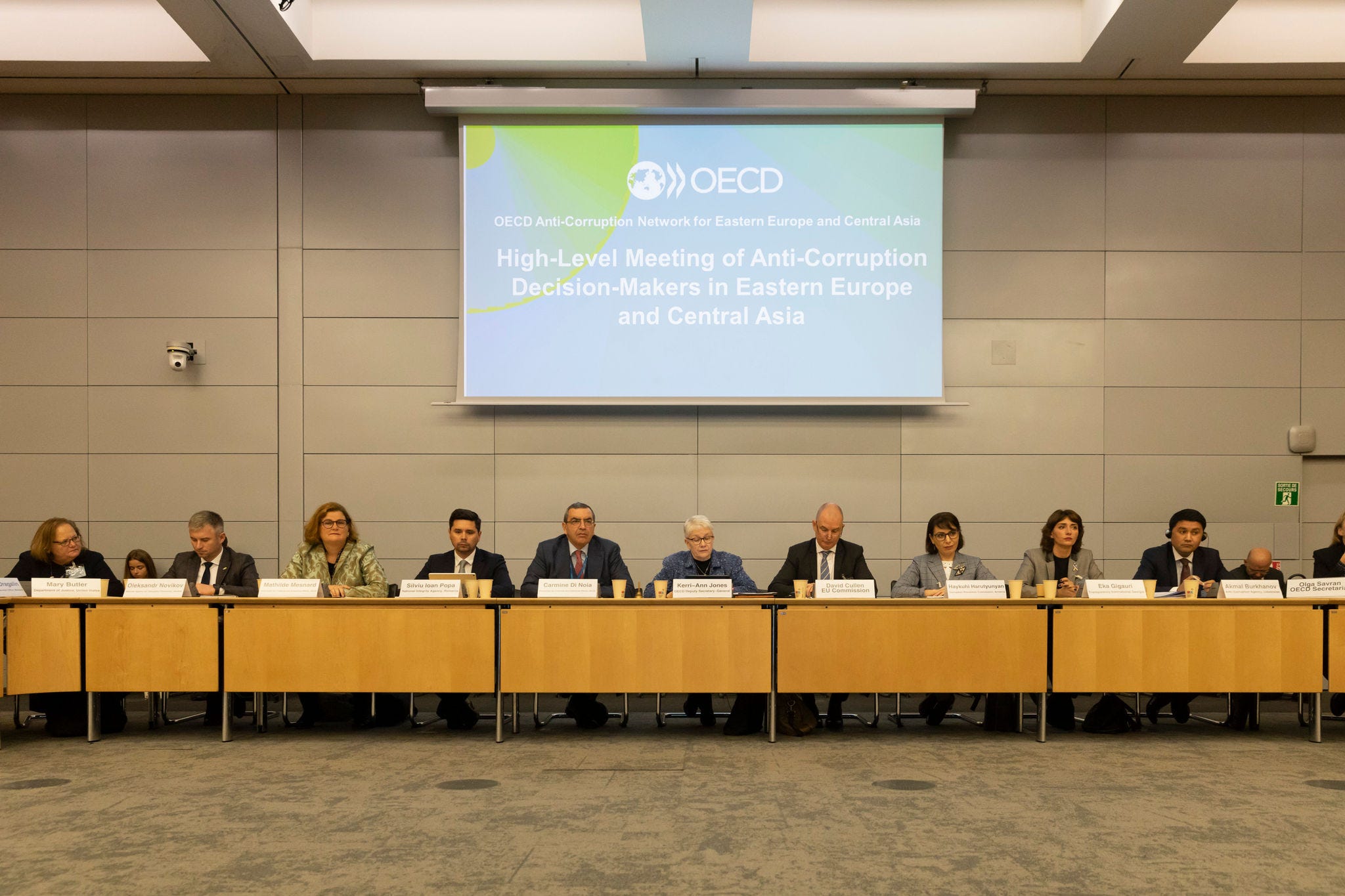 16 November 2022
16 November 2022



